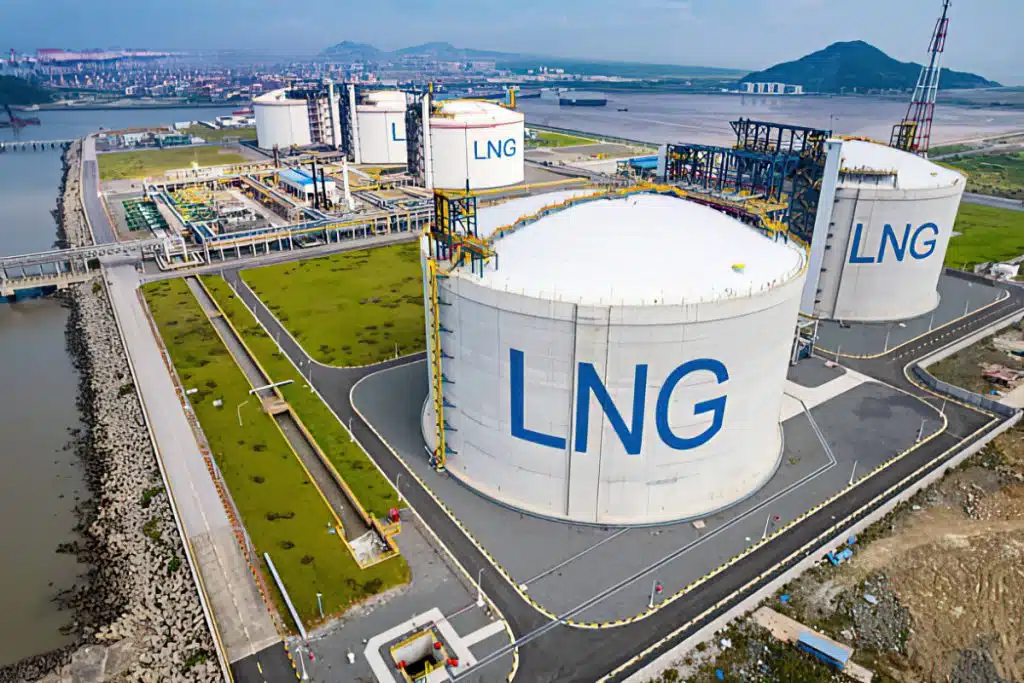Nigeria’s liquefied natural gas (LNG) production has dropped sharply due to pipeline vandalism, with gas supply to Nigeria LNG Ltd. (NLNG) now at just 20% of the plant’s requirement, according to people familiar with the matter.
On his part, NLNG Chief Executive Officer, Philip Mshelbila stated last week that only two of the facility’s six processing units are currently operational.
He also reported that three critical gas pipelines remain out of service, severely limiting output.
The sharp decline in Nigeria’s LNG exports could tighten global supply, potentially driving up spot prices in Asia and Europe.
In 2024, nearly half of Nigeria’s LNG shipments went to Asia, while about a third was sent to Europe, according to Bloomberg data.
Industry analysts suggest that prolonged disruptions could impact energy security in key importing regions.
“With the supply shortage from Nigeria, buyers may need to turn to alternative sources, which could push prices higher,” a market expert familiar with LNG trading said.
Some energy experts also warn that Nigeria’s declining LNG output could weaken its long term standing in the global gas market.
“Countries depending on Nigeria’s LNG might look for more stable suppliers, and that could hurt the country’s future contracts,” an analyst noted.
Production challenges and stakeholder response
Nigeria’s LNG exports fell 40% in February compared to the previous month, according to data compiled by Bloomberg. The drop comes as the country struggles with pipeline vandalism and operational setbacks.
Shell Plc is one of the key shareholders in Nigeria LNG, alongside the Nigerian National Petroleum Company (NNPC), TotalEnergies, and Eni.
A spokesperson for Shell did not immediately respond to inquiries regarding the situation.
Nigeria’s energy sector has long faced challenges from pipeline sabotage, oil theft, and inadequate infrastructure, affecting both domestic supply and export revenues.
The government has vowed to intensify security measures around critical oil and gas infrastructure, but the persistent attacks continue to pose a major threat to production.
If these issues remain unresolved, Nigeria risks losing further revenue from LNG exports, which play a crucial role in the country’s foreign exchange earnings.






